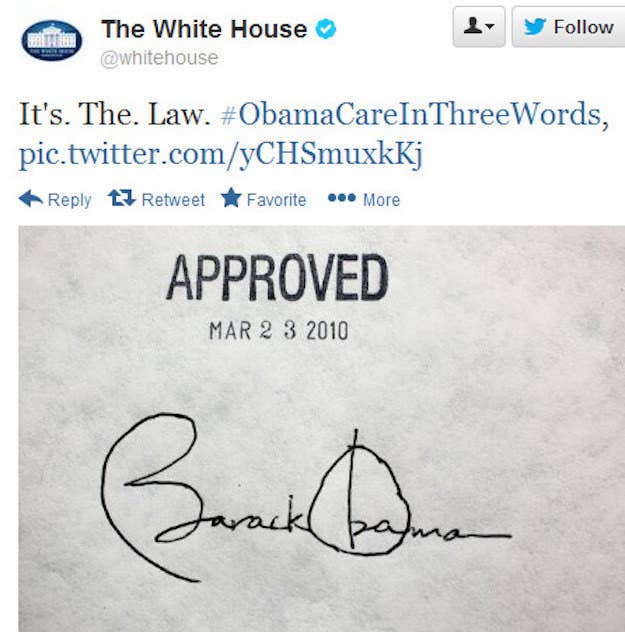
Obamacare: How Reality Shapes Our Language
While many may argue that it is our language that shapes our reality, it is interesting at the very least to examine examples where terminology has changed overtime in regards to its perception. There are various terms that have become quite ambiguous throughout the years, but there are fewer examples of words with perceptual fluidity that have almost completely changed in the eyes of the public.
Seven years ago, the Affordable Care Act was introduced to the public and made its way through congress to eventually becoming the law of the health care industry. In an effort to stigmatize the legislation, congressional Republicans set out to use President Obama’s popularity (or what they saw as lack thereof) to steer public opinion away from the bill by referring to it as ‘Obamacare’.
The Republican-crafted terminology attempted to tie public opinion to that of the fluctuating popularity of the former president. While it is important to note that the perceptual changes in regards to Obamacare could obviously reflect the changes people saw in their health coverage, it is also important to note that this perceptual change may run somewhat parallel to the shift in popularity in regards to how the public viewed Obama’s presidency.
The PEW Research Center tracked the public opinion of the ACA from 2010 (when it was signed into law) to Feb. 12, 2017. The poll shows public support for the bill rising from 40% in 2010 to 54% in Feb. of 2017. RealClearPolitics demonstrated similar findings with 39% support for the ACA in 2010 and 48% support as of March 20, 2017.
While it is difficult to understand what may have been the most influential factor (Obama’s popularity, changes in health coverage, the emergence of President Trump, etc.) is shifting public opinion of the ACA, it is quite clear that Americans are starting to conceptualize the bill in a more positive light. The shift in support for the ACA is important to note in itself, but what might also be interesting to realize is the political irony that we see today.
Congressional Republicans coined the terminology for Obamacare in aim to sink its view among the public, and yet that strategy has begun to backfire. As former President Obama left office with his highest approval rating during his tenure as Commander in Chief, we have seen a similar affect with everything that his named was attached to, especially Obamacare. By attaching Obama’s name to legislation that has now mustered majority of public support, Republicans have now attributed credit to Obama for a bill that they initially saw as politically toxic.
What might also be amusing to note, is the reluctance from Congressional Republicans to coin the newly proposed (and recently pulled) American Health Care Act ‘Trumpcare’. The Trump Administration has refrained from attaching the Trump name to the drafted legislation crafted by Rep. Paul Ryan mostly due to the severely low public support of the ACHA. As of March 23, 2017, a poll conducted by Quinnipiac University found that the proposed bill had an approval rating of only 17%.
The ACHA or ‘Trumpcare’ has now been halted from reaching a vote in the House, and the new administration seems to be leaning towards putting an indefinite hold on any further action towards repealing the ACA. Understanding this idea behind terminology, we can quite possibly use this knowledge to understand the initial confidence behind future legislation. When a president refuses to attach his or her name to a particular bill, we may be able to infer its intended efficacy entirely. Going forward, politicians may want to consider that while attempting to use language to shape reality, it is the circumstances of our reality that may in turn shape our language.
Russell Hartley

